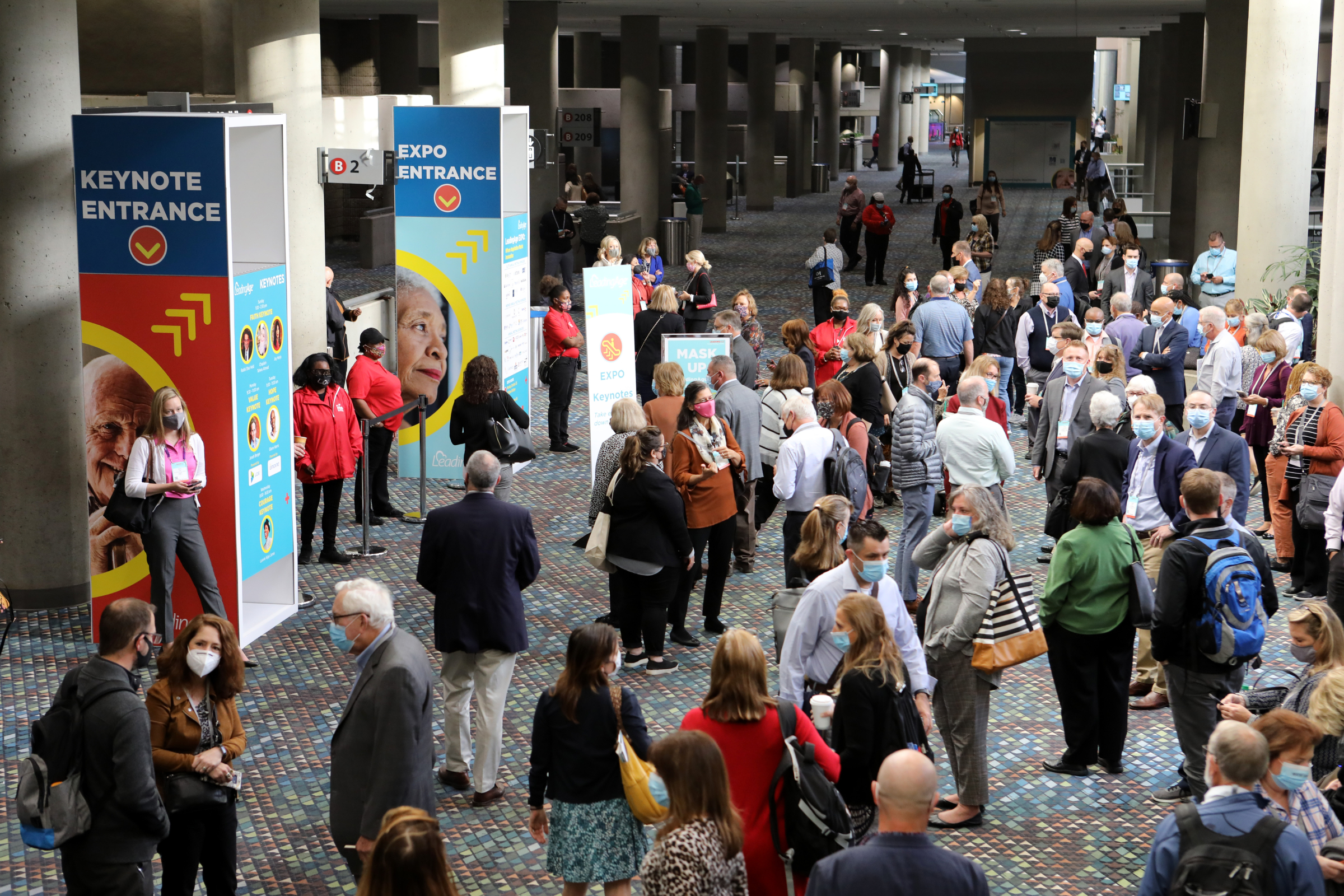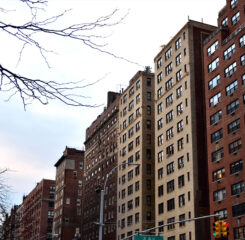HUD Physical Inspections and NSPIRE demonstration; Latest Developments
NSPIRE: Inspection Demonstration Becomes Voluntary and Nationwide
The REAC inspection demo is no longer going to be a mandatory participation program, nor restricted to just Region 3. Instead, participation is going to be voluntary, and national providers may be able to volunteer to be part of the demonstration. The demonstration to test out these new standards for inspecting, and collecting information about, the condition of most properties has been christened National Standards for the Physical Inspection of Real Estate (NSPIRE), and has a new landing webpage where further details will be provided as things move forward. This two-year, voluntary demonstration is still expected to begin sometime during the third quarter of fiscal year 2019.
During an in-person meeting on March 26 with HUD deputy assistant secretary for multifamily housing, Lamar Seats, and a team of multifamily program office directors, LeadingAge learned that the previously planned REAC physical inspection demonstration – due to start in third quarter of FY19 (approx. May) incorporating all properties in most of Region 3 (VA, DC, MD, DE, and PA) – is now expected to become a voluntary participation program, targeting the same Region 3, but potentially including an opportunity for multifamily owners/agents to volunteer to participate outside of that region.
HUD officials indicate that details will be part of a future Federal Register announcements; that volunteering organizations will be given the necessary software, which HUD believes will be compatible with some of the largest existing software systems, to conduct their own 100% self-assessment; and confirmed that participating volunteer sites will be exempted from the normal REAC UPCS inspection process during the timeframe of the demonstration.
Once the demonstration implementation notice is issued (expected sometime in June), a portal will be enabled on the REAC NSPIRE webpage.
Questions and comments concerning the demonstration may continue to be shared with LeadingAge, and/or submitted directly to HUD at NSPIRE@HUD.gov.
For updates on the new REAC protocols, you and your staff can join the HUD mailing list below. Per HUD’s notification, subscribers will receive periodic messages about the new inspection model and the demonstration.
[NEW] Sign Up for the HUD REAC NSPIRE Email Listserv
HUD’s Real Estate Assessment Office invites you to subscribe to its National Standards for the Physical Inspection of Real Estate (NSPIRE) mailing list. This is an easy way to stay informed. Sign-up by clicking here and provide your email address. You will receive an email message shortly, asking to confirm your registration. Once confirmed, you will receive periodic messages. You may cancel your subscription at any time.
LeadingAge Actions on Behalf of Members
On May 13, LeadingAge hosted a member call-in, a virtual REAC listening session, in which approximately 100 members participated. (NEW: Answers to questions asked during the call can be found here.) Subsequently, LeadingAge staff attended a Secretary-led briefing and HUD/Industry update on NSPIRE demonstration. Not surprisingly, information about and details concerning the demonstration continue to evolve. The May 20th PIH-REAC and Multifamily Day PowerPoint Slides provide additional details on the reverse auction, NSPIRE goals, new plans to measure and evaluate wall moisture (including a specific solicitation on comments regarding this iniative and methods to be used), several additions to the NSPIRE and current process timeline (p. 11), and demonstration participation registration (pp. 18-19).
NEW: LeadingAge has filed comments with the Department of Housing and Urban Development (HUD) on the agency’s emergency information collection notice posted May 23 concerning the National Standards for the Physical Inspection of Real Estate (NSPIRE). According to the data collection notice, HUD will be asking owners participating in the demonstration to submit annual self-inspection reports and other property-specific data and certifications. We urged HUD to keep the abilities and resources of smaller properties in mind in considering processes for submitting data and to allow properties to use software they already have for reporting, rather than requiring the installation of any new computer systems.
Inspector Guidance on Scheduling and Notifications
HUD issued, effective March 25, new terms and conditions to inspectors about how they are to handle the requisite 14-day notification process, and any owner refusal to comply. These new scheduling rules detail:
- Scheduling Methodology: REAC Inspectors are instructed to “create a schedule of properties and the dates that the inspectors have assigned the properties prior to notifying any of the owner/agents. One of those dates will be fourteen days from the initial notification date and the second date will be a final date within seven days of the first inspection date if the first inspection is unsuccessful.”
- Notification Procedure: REAC Inspectors are told that they “must call owner/agent exactly 14 calendar days prior to the inspection to notify the owner/agent of the inspection date and then send an email confirmation as well.” Note that HUD specifically says that “A confirmation by the owner/agent is not required to proceed with the scheduled date.” LeadingAge has queried whether there is wiggle-room, within the initial 14-day notification period, to enable owners to minimally shift the date without exceeding the 14 days, to accommodate special events or other conflicts at the site. The general response suggests this is possible, but wholly subject to inspector willingness and availability. If an initial inspection date within 14 days is not accepted, however, a provisional score of zero WILL be recorded.
- Non-Compliance with Scheduling: If, prior to the first inspection date, the owner/agent informs the contractor that they will not allow the inspection to go forward, the contractor will record the rejection and then provide the second inspection date which was recorded in the schedule sent to REAC. If the owner/agent agrees to the date, the contractor should then send a new confirmation. If both inspections are refused or unsuccessful as the result of the owner/agent, the inspector is to report this to HUD, and zero score will be the final score of record.
- Exceptions for Extraordinary Circumstances: If the owner/agent refuses the inspection dates because they are undergoing substantial rehabilitation, the REAC Inspector has been instructed to inform the owner/agent that unless they have received an approved waiver/postponement from HUD prior to the scheduled inspection date that the inspection must go forward as scheduled. In such cases as these, retroactive database adjustments should be pursued, as detailed here.
Regional Offices May Provide HUD-Approved Delays
HUD has delegated authority to the 12 field offices (5 regional centers and 7 satellite centers) to consider and approve an owner/agent’s request to delay an inspection outside of the new 14-day protocol (as detailed in Notice H 2019-04).
According to HUD, requests to extend or reschedule an inspection outside of the notification window, for any circumstances which may significantly impact the execution of an inspection or inspection results (e.g., major renovations, significant rehabilitation, fire, etc.), must be “submitted by the POA and approved by HUD prior to the proposed date of inspection.” And
The March 21 memorandum “Approving the Delay of a Physical Inspection Beyond the New Real Estate Assessment Center (REAC) Inspection Notification Timelines” is being distributed by regional offices to owner/agents in their area, and indicates that the Asset Management Director may approve a delay in an inspection for the following four (4) circumstances: major rehabilitation; Presidential Disaster Declaration, other emergency; or, HUD approved repair plan.
The memorandum also explains what an Account Executive or Resolution Specialist should do once a delay is approved/denied.
“Major Rehabilitation” is defined as being tied to a major recapitalization transaction with a total cost of rehabilitation at $15,000 or more per unit. Owners/agents must provide the HUD field office with information to verify the state and end dates of the rehabilitation, along with a description of the work covered and the total cost.
NOTE: where repairs or rehabilitation do not meet these threshold criteria, the POA may submit at Database Adjustment (DBA) prior to the inspection taking place, or within 45 days of the release of an inspection report. View this HUD YouTube video on how to submit a DBA appeal for more information.
NEW Multifamily Enforcement for REAC Zero Scores
Read the May 1, 2019 memorandum that provides guidance on what steps a field office must take when a project receives a score of zero because an owner and/or management agent defaulted on the contractual obligation to allow HUD to perform a physical inspection based on the new 14-day notification period.
GAO Recommends Improvements in REAC Inspection Process and Inspector Oversight
On March 21, 2019, the Government Accountability Office (GAO) released a report titled “HUD Should Improve Physical Inspection Process and Oversight of Inspectors”. The GAO report identified concerns that the physical inspection process does not identify troubled properties effectively or that REAC does not always meet its schedule for inspections of properties. GAO provided several recommendations, including a comprehensive review of REAC and enhanced documentation of policies and procedures, better selection and training of inspectors, increasing the accuracy of inspections, and better alignment with statutory requirements.
Carbon Monoxide Detectors
A March 25 REAC notice instructs inspectors to collect information on the presence, absence, and/or inoperability of carbon monoxide detectors in any location where there is gas burning equipment. Such equipment includes furnaces, ranges, boilers, and water heaters. However, it specifically states that “[t]he presence or absence of a CO detection system is for data collection purposes only. The collection of this data does not affect a property’s inspection score.”
NEW: On April 18, HUD issued a notice H2019-05: Carbon Monoxide Detectors in HUD Assisted Housing to remind owners, managers, and agents of certain HUD-assisted housing to have operational carbon monoxide (CO) detectors, where specified, as required by the state or local law, code, or other regulation, and to strongly encourage owners, managers, and agents of housing covered by the HUD assistance programs above, located in areas where state or local law, code or other regulations do not require CO detectors, to have operational CO detectors (1) in units that have fuel-fired/burning appliance(s) and/or an attached garage, and (2) in bedrooms that contain a fireplace or a fuel-fired or burning appliance. On May 20, HUD announced that $5 million will be made available for the purchase and installation of carbon monoxide (CO) detectors in public housing units where they are necessary. Provided through HUD’s Emergency Safety and Security Program, these funds represent the first time HUD is targeting grants specifically for the purchase and installation of carbon monoxide detectors. It is unclear at this time whether these or other funds will also be made available to the multifamily assisted housing portfolio or not.

Most Recommended
October 15, 2025
 Shutdown Week Three: Impact of Ongoing Closure on Affordable Housing
Shutdown Week Three: Impact of Ongoing Closure on Affordable Housing
February 14, 2026
Fiscal Year (FY) Funding 2026
October 07, 2025
Immigrant Workforce Matching Program Brings Workforce Relief
Recently Added
February 20, 2026
House Overwhelmingly Passes Housing for the 21st Century Act
February 20, 2026
HUD Proposes Immigration Eligibility Changes for "Mixed Status" Families
February 20, 2026
TPS Terminations: LeadingAge Explains Member Impact To Congress
February 18, 2026



